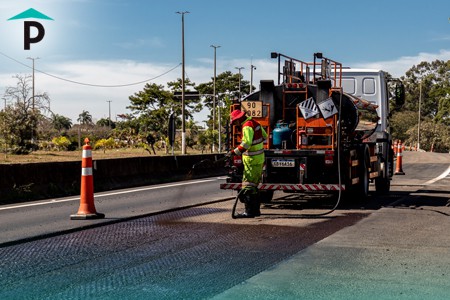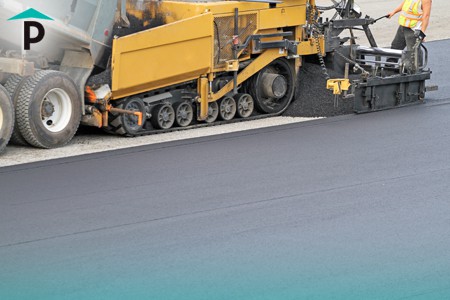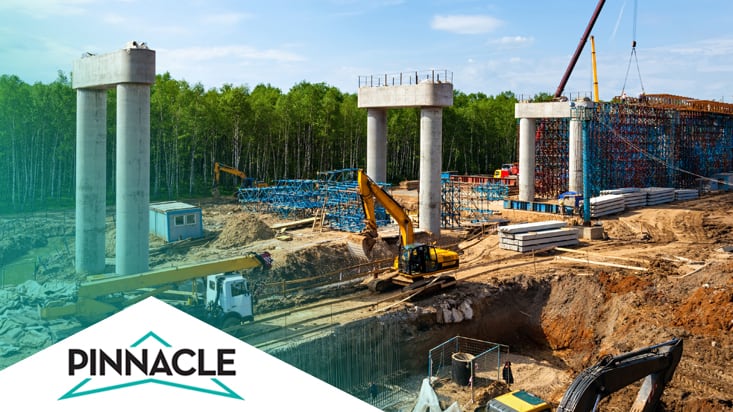Surety Bonds are an essential part of the Road Improvement process. A Performance Bond is a type of surety bond that guarantees the completion of a project or contract. A Payment and Performance Bond is a two-part bond that ensures both the payment of debts and the completion of a project. There are many different types of Surety Bonds, each with its own specific purpose. The following article will discuss the various types of Surety Bonds and their role in Road Improvements.
Call: (844) 612-7238 to get started
Performance Bond
 A Performance Bond is a type of surety bond that guarantees the completion of a project or contract. If the contractor fails to complete the project, the surety company will pay the owner for any losses incurred. The purpose of a performance bond is to protect the owner from financial loss if the contractor does not complete the project.
A Performance Bond is a type of surety bond that guarantees the completion of a project or contract. If the contractor fails to complete the project, the surety company will pay the owner for any losses incurred. The purpose of a performance bond is to protect the owner from financial loss if the contractor does not complete the project.
Bid Bond
A Bid Bond is a type of contract bond that is required when submitting a bid for a project. The purpose of a bid bond is to validate the integrity of the proposed construction bids. This ensures that the project bid is feasible and falls inline with the project requirements and expectations.
Payment bond
A Payment Bond is a type of surety bond that guarantees the payment of debts. If the contractor fails to pay their debts, the surety company will pay the creditors. The purpose of a payment bond is to protect the creditors from financial loss if the contractor does not pay their debts.
Improvement bond
This type of bond is also referred to as a construction contract bond. It is a surety bond that is required in order for a contractor to be able to obtain permitting from the city or county.
The purpose of the improvement bond is to protect the municipality against any financial losses in the event that the contractor fails to complete the project according to the terms of their contract.
It also provides protection for the property owner in case there are any defects in the workmanship or materials used.
Subdivision Bond
A subdivision bond is a type of performance bond required by some state and local governments of developers. The purpose of the bond is to protect the government entity and surrounding property owners from financial loss in the event that the developer fails to complete public improvements within the subdivision, such as roads, drainage, or sidewalks.
Contract Bond
This type of bond is also referred to as a bid bond. It is a three-party agreement between the Owner (Obligee), the Contractor (Principal), and the Surety. The purpose of the contract bond is to provide financial assurance that the Principal will enter into a written contract with the Obligee under the terms and conditions of the bid.
Labor and Material Bond
A labor and material bond is required when the project owner wants to assure that the contractor will pay their subcontractors and suppliers for labor and materials provided for the project.
A surety bond is a three-party agreement between the Principal (Contractor), Obligee (Project Owner), and Surety (Bonding Company). The purpose of a surety bond is to financially guarantee the subcontractor performance bond. Therefore, when a contractor is required to obtain a surety bond, they are essentially being asked to put up a financial guarantee that they will complete their contractual obligations.
Infrastructure Surety Bond
A infrastructure Surety bond is required for contractors working on infrastructure projects such as bridges, highways, water and sewer systems, etc. The purpose of this bond is to protect the project owner from financial loss if the contractor fails to complete the project or meet the terms of their contract.
Construction Surety Bond
A construction surety bond is a type of contract bond used in the construction industry. Construction surety bonds are required by both public and private entities to ensure that the contractor will complete the project according to the specifications laid out in the contract.
Paving Bond
 This type of bond is required for contractors working on paving projects such as roads, parking lots, and driveways. The purpose of this bond is to protect the project owner from financial loss if the contractor fails to complete the project or meet the terms of their contract.
This type of bond is required for contractors working on paving projects such as roads, parking lots, and driveways. The purpose of this bond is to protect the project owner from financial loss if the contractor fails to complete the project or meet the terms of their contract.
Road Construction Bond
This bond guarantees the project’s safety in terms of both quality and schedule. A road construction bond is a type of surety bond used in public works projects, specifically highway, street, and bridge construction projects. Road construction bonds are required by state or local governments in order to ensure that the contractor will complete the project according to specifications and on time.
Highway & Transportation Construction Contractor Surety Bond
This type of bond is required for contractors working on highway and transportation construction projects. The purpose of this bond is to protect the project owner from financial loss if the contractor fails to complete the project or meet the terms of their contract.
Government Contract Work Bonds
The Federal government, as well as state and local municipalities, often require contractors to provide payment and performance bonds for the work they will be performing. These types of surety bonds are in place to protect the taxpayer’s investment, as well as to ensure that the contractor will complete the project according to the terms of their contract.
In conclusion, many types of surety bonds may be required for a construction project. The kind of bond that is required will depend on the specific project and the jurisdiction in which it is located. Therefore, it is essential to consult with a bonding company before bidding on a project to ensure that you can obtain the necessary bonds.


